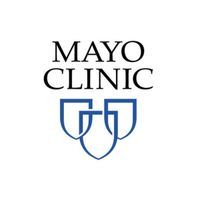
Phase 2B ExTINGUISH Trial Aims to Assess Efficacy of Inebilizumab for NMDAR Encephalitis

Key Takeaways
- The ExTINGUISH trial evaluates 300-mg inebilizumab for moderate-to-severe NMDAR encephalitis in a diverse patient population, including those aged 12-18.
- Primary efficacy analysis uses the Van Elteren test, while secondary analysis assesses adverse events using logistic regression.
The ExTINGUISH trial investigates inebilizumab's efficacy for NMDAR encephalitis, aiming to enhance treatment options for diverse patient populations.
Researchers have published the trial design of the phase 2b ExTINGUISH trial (NCT04372615), a multisite, randomized, double-blind, placebo-controlled study to test the efficacy of 300-mg inebilizumab for patients with moderate-to-severe NMDAR encephalitis.1
In the study, participants (target enrollment of 116) from across the United States and Europe will receive first-line immunotherapies before randomization to either inebilizumab or placebo. Outcomes will be measured at 6, 16, 24, 32, and 96 weeks, with comprehensive neurophysological tests and cognitive screening tools being used at the final 96-week time point. The effort is being led by Stacey L. Clardy, MD, PhD, FAAN, who is part of the clinical and research faculty in the Division of Neuroimmunology within the Department of Neurology at the University of Utah, and serves as a neurologist at the Staff Salt Lake City Veterans Affairs Health System, and a consultant at Primary Children’s Hospital.
Findings from this study could provide key information for the development of future treatments and trials for patients aged 12 years and older with NMDAR encephalitis and other types of autoimmune encephalitis. The trial is enrolling participants in that age group and plans to continue accepting patients who have experienced new onset of NMDAR encephalitis within the past 3 months. Significant efforts have been made to enroll a diverse population to date.
Clardy et al noted that "the primary efficacy analysis will assess the change in ExTINGUISH mRS between baseline and 16 weeks, accounting for factors influencing the change such as use of rescue therapy and time to reach the final mRS. This analysis will be implemented using the Van Elteren test, an extension of the Wilcoxon rank-sum test adjusting for age strata. The secondary analysis will assess AEs and SAEs occurring within 32 weeks by comparing frequency between the 2 treatment groups using a logistic regression model, adjusted for baseline mRS and age group strata."
ExTINGUISH specifically aims to include patients aged 12 years and older, recognizing that approximately 40% of patients affected by NMDAR encephalitis fall within this age group. By focusing on diverse patient populations, the trial will look to generate findings that are more generalizable and applicable across different demographics.
READ MORE:
The patient assessment will start with a 14-day screening period, followed by the treatment phase which begins at randomization. During the 15-day treatment phase, participants are randomly assigned in a 1:1 ratio to receive intravenous doses of either 300-mg inebilizumab or placebo (normal saline) on days 1 and 15; the second dose will target newly circulating B cells. This approach is supported by phase 1 studies in multiple sclerosis and scleroderma, and by phase 1 and 3 trials in neuromyelitis optica spectrum disorder, showing the 300-mg dose is effective and durable. On day 22, all ExTINGUISH participants will receive a 3-day course of IVIg (0.4 g/kg daily) to maintain the benefits of the initial immunotherapy, prevent fluctuations in treatment response, and lower the risk of infection during hospitalization and immunosuppression.
Relapse identification through the trial is critical, as 8%–36.4% of patients with NMDAR encephalitis relapse after the first presentation. Despite this, the cause of NMDAR relapse remains unknown. "Putative patient and disease-specific factors associated with higher odds of relapse identified in retrospective studies include sex (female), patients without a detected and removed teratoma at onset, abnormal brain MRI during the initial disease course, and lack of second-line therapy (rituximab and cyclophosphamide)," the authors wrote.
"Clinical features of relapse may include speech disorders, psychiatric symptoms, disturbances of consciousness or attention, and seizures. Less commonly, relapses present with isolated atypical symptoms/signs suggestive of brainstem-cerebellar involvement (ataxia, diplopia, dysphagia, and tremor)," Clardy et al continued.
To ensure equipoise and promote recruitment and retention, the ExTINGUISH trial includes the option for rescue therapy. Cyclophosphamide was selected as the rescue therapy and will be offered to participants experiencing disability after 6 weeks of treatment or confirmed NMDAR encephalitis relapse.
The data will be analyzed using CONSORT guidelines and presented through descriptive statistics by randomized group. The primary efficacy analysis will be implemented to assess the sensitivity of the results. Overall, the investigators’ hope is that the ExTINGUISH trial will enable validation studies for primary and secondary outcomes, creating reliable clinical measures for NMDAR encephalitis to benefit future clinical trials.
REFERENCES
1. Wong KH, Day GS, Torner JC, et al. A Phase-2B Double-Blind Randomized International Prospective Trial of Inebilizumab in NMDAR Encephalitis: The ExTINGUISH Trial. Neurology. 2025;1(2). doi:10.1212/WN9.0000000000000007
Newsletter
Keep your finger on the pulse of neurology—subscribe to NeurologyLive for expert interviews, new data, and breakthrough treatment updates.










